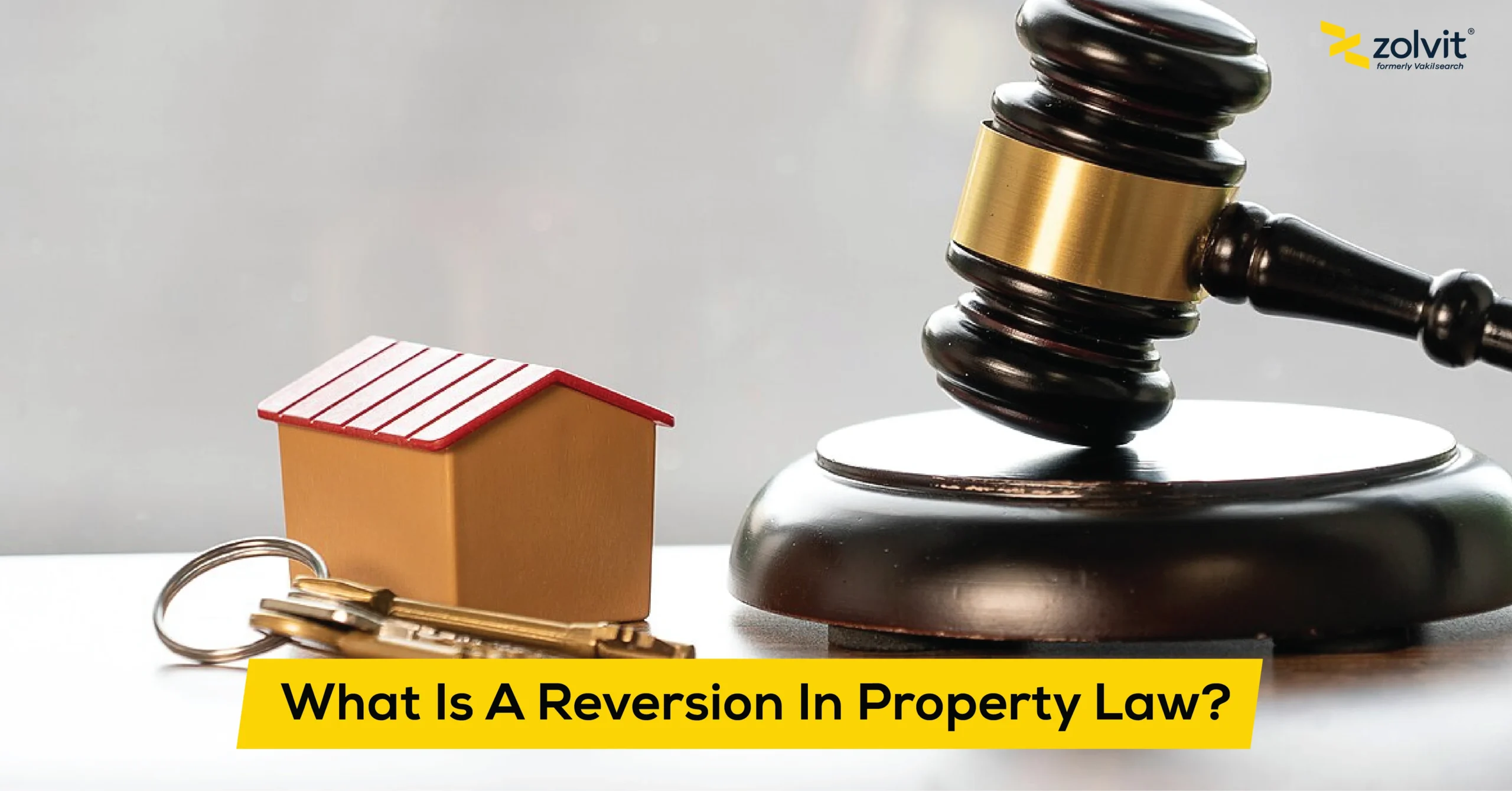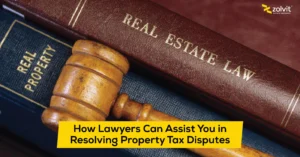Reversion generally occurs in property law as a return of property to its owner, or his successor, after a given date or event. It may also refer to any interest the owner retains in the property during that time.
In this blog, you’ll learn about what is reversion in property law and its impact on ownership rights. Understanding reversionary interests helps in structuring agreements and ensuring legal compliance.
Why Reversionary Rights Matter in Property Transactions
In property transactions, reversionary rights become relevant in ensuring that, after the expiration of any temporary interest, for example, a lease or life estate, the property will return to its original owner. By this, the property title is maintained intact, and the owner recovers title upon expiration of the temporary interest. The reversion may affect the decisions surrounding the sale of property, leasing, and the use thereof, as the reversion influences all parties concerned regarding the future return of ownership.
Types of Reversionary Interests
Reversionary interests specify how property returns to the original owner under certain conditions. There are three types: automatic transfer, conditional repossession, and the option to repurchase.
- Automatic Reversion
Automatic reversion refers to the automatic return of ownership of property to the original owner at the expiration of a specified term, such as a lease term or the death of a life tenant. It is an automatic procedure, needing no additional procedures to put it into motion.
- Right of Reentry
A right of reentry is a form of reversionary interest granting the original owner the right to reclaim the property after some tenant or lessee violation of conditions (none payment of rent, for instance). This right allows the owner to regain possession without a further legal battle but has to be expressly defined within the lease.
- Option to Reacquire
A reacquisition option permits the original owner to repurchase the property, often at a fixed price, following the sale or lease of that property. This is in contrast to automatic reversion in that it requires some act by the owner to exercise the option.
Legal Framework Controlling Reversion
This legal framework makes sure that the reversionary interests are clearly defined and enforceable. It outlines the rights of reversioners and the conditions under which ownership of property will revert to its original owner.
Section 20 of the Transfer of Property Act, 1882
In India, the Transfer of Property Act, 1882 Section 20 lays down how reversionary interests function. It stipulates how property may be conveyed subject to the condition that it shall go back to the original owner or their successors in interest after specified conditions or lapse of time have occurred. It provides that reversionary interests must be expressly stated and also be given the force of law.
Legal Rights of Reversion Holders
An individual with a reversionary interest has the legal entitlement to reacquire the property at the expiration of the temporary estate. Such rights are enforceable under the law, i.e., when the conditions are fulfilled-e.g., in the case of lapse of a lease or death of a life tenant-the reversion holder becomes entitled to receive the property.
Process of Creating and Ending a Reversion
Reversionary interests are usually created when a property owner gives someone a temporary interest, such as a lease or life estate, with the expectation that ownership will return to them or their heirs after the term expires. A reversion is ended when a new transaction takes place, such as a sale, or when the condition specified is fulfilled (e.g., the life tenant’s death).
Impact of Reversion on Property Ownership
In property ownership, one of the important roles of reversion is to enable the original owner’s rights to be retained. This impacts property transactions, title security, and legal transfers under the Transfer of Property Act. These are important as they help maintain ownership control and clarify property rights.
- Reversion implies that the original owner will always maintain ultimate control over the property.
- The tenant or life tenant enjoys a particularly limited use of the property.
- Title ownership remains in the hands of the original owner, with title reverting to the original owner after the expiration of the term.
- The existence of a reversionary interest can hinder the selling of real property.
- It may be occasioned by a return of the property to the original owner at some later time.
- There must therefore be conditions for the reversion so that disputes are usually prevented.
- The right of reversion is recognized by the Transfer of Property Act, 1882.
- The Act permits the transfer of the reversionary interest to another person.
Common Issues in Reversion
Specific terms and documentation must be in place to avoid conflict over reversionary rights. Legal intervention helps to settle disputes, allowing property transfer to occur easily.
- Disputes arise when reversion terms are unclear, especially in long leases or life estates.
- Unclear or undisclosed reversionary interests create issues in property transfers.
- Proper disclosure helps buyers understand future ownership changes.
- Mediation, litigation, and clear contracts help resolve reversion disputes.
Role of Property Lawyers in Reversionary Matters
The property lawyers handle reversionary interests by legal clarity while at the same time protecting ownership rights. In this regard, they assist in contract drafting, resolving disputes, and protecting their clients’ reversionary claims.
- Legal Advice and Guidance on Reversionary Interests
A reversionary interest lets the original owner reclaim property after set conditions, like lease expiration or reentry rights. These interests are common in real estate contracts and need legal clarity to prevent disputes.
- Drafting and Reviewing Contracts with Reversionary Clauses
Property lawyers prepare the contracts to determine when property returns to the owner. Clear terms ensure compliance and preclude disputes and the interests of the owners and lessees are better secured.
- Representing Clients in Disputes Over Reversionary Interests
Disputes arise due to unclear contracts or conflicting claims. Lawyers help resolve conflicts through negotiation or litigation to enforce or nullify reversionary rights.
- Legal Defense and Protection of Reversionary Rights
Lawyers defend reversionary rights against wrongful claims. They file suits, seek injunctions, and negotiate settlements to safeguard property owners’ interests.
How Reversionary Rights May Be Transferred or Assessed
The transfer of reversion rights holds particular relevance in law and contract with respect to property ownership; this process not only suffices in understanding it but contributes to specifying all parties concerning legally required operations so that future conflicts can be avoided.
Can Reversionary Rights Be Transferred?
Yes, reversionary rights can be assigned or transferred to a third party. The procedure is usually by way of a legal document, e.g., deed or contract, and must adhere to the provisions of the initial agreement.
How to Legally Transfer or Assign Reversionary Interests
To assign reversionary rights, the existing holder will need to sign a formal deed of assignment. This outlines the assignment of rights and responsibilities of the new holder, and may need to be registered with appropriate authorities.
Implications of Transferring Reversionary Rights
When reversionary rights are transferred, the new owner takes the original owner’s place and the right to regain the property after the temporary interest has lapsed. This transfer may affect future property choices, so it’s essential to realize its implications completely.
Conclusion:
Through property law reversion, the original owner could regain possession after the expiration of temporary interests. Be it an automatic reversion, a right of re-entry, or assignment, it is important that these principles be understood for property transactions. With legal guidance, such complexities would be in general and this would clarify in terms of agreements and even dispute resolutions. Contact Zolvit to request professional assistance with property matters.
- Reversion in Property Law enables the original owner to regain possession after the expiration of temporary interests.
- Reversionary interests specify how property returns to the original owner under certain conditions.
- Automatic reversion occurs when ownership returns to the original owner after a lease term or the death of a life tenant.
- Right of reentry allows the original owner to reclaim the property if lease conditions are violated.
- Section 20 of the Transfer of Property Act, 1882 defines the legal framework for reversionary interests in India.
FAQs Related to Reversion In Property Law
How does a life estate differ from a reversionary interest?
A life estate allows use for a lifetime, while a reversionary interest ensures ownership returns to the original owner.
What happens if the holder of a reversionary interest dies?
The reversionary right passes to their heirs or legal successors as per inheritance laws or a will.
Can reversionary rights be transferred or assigned to another party?
Yes, they can be transferred, sold, or assigned through a legally valid agreement.
How long can a reversionary interest last?
It lasts until the temporary estate ends and ownership reverts to the original owner.
How does a reversion impact the overall value of a property?
It lowers value for temporary holders but adds future value for the reversion owner.
Is a wife the co-owner of the property?
A wife is only a co-owner if the property is jointly owned, gifted, or inherited.
What is an example of a reversion in property law?
A leased property returning to the landlord after the lease expires is an example.
What is the difference between an estate in reversion and remainder?
A reversion returns to the owner, while a remainder goes to a third party.
What is the difference between a reversion and a possibility of reverting?
A reversion follows a temporary estate, while a possibility of reverter enforces conditions.





